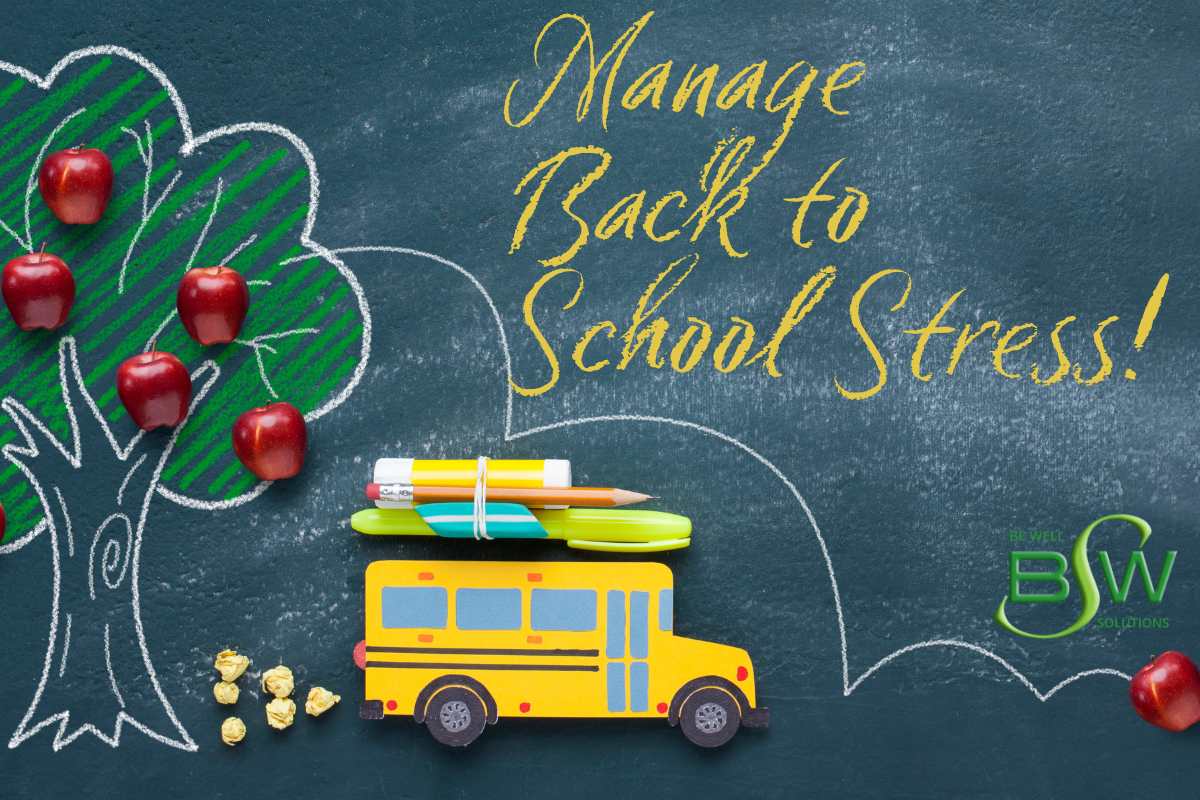
A new school year is a busy and exciting time for students of any age. However, all that excitement can bring a lot of extra stress. Settling back into a routine can be a breath of fresh air after the summer break, but between changes in schedules, homework, tests, and day-to-day responsibilities, life can start to feel overwhelming quickly. We’re going to explore five different ways that can help you manage stress this school year.
Stay Organized
Nothing makes stress levels spike like losing an assignment or completely forgetting about a test. Clutter of the mind or physical clutter around you can leave you with your wheels spinning, unsure of what to do next. Even if you don’t consider organization one of your strong suits, there are several easy habits you can incorporate to keep your school responsibilities in order.
Younger students can practice skills like making a designated space at home for all school-related material such as their backpack, books, homework, etc. They can also color-code schoolwork or classes and keep separate folders for completed assignments.
Older students might find that a digital or physical planner can help keep track of assignments, due dates, and tests. Create a study area that has minimal clutter and is used specifically for schoolwork and studying. If possible, choose a space that has minimal distractions and noise.
Prioritize Sleep
Regardless of age, schedules tend to be jam-packed during the school year. Sports, studying, and extracurricular activities can make for late nights and early mornings. As your schedule gets busier, make sure you’re still prioritizing sleep. An adequate night’s sleep between six and eight hours can help you feel more energetic, productive, and focused. It’s also great for keeping your immune system strong!
Be Active
Exercise is one of the best ways to manage stress, as it can be a healthy outlet and mind break during a busy day. Students spend a lot of time sitting in class during the day. Long hours of sitting can leave you feeling exhausted and unfocused. Incorporating physical activity is a great way to increase your energy levels and keep you productive. If you need a few moments of calm, try a lighter activity like yoga, stretching, or walking, where you can focus on your breath. Or, if you need to blow off a little steam, you can choose an activity of higher intensity, such as boxing, running, or circuit training. Younger students that aren’t involved in sports should still aim to incorporate active play into their daily routines. If you prioritize an exercise routine as a student, chances are you’ll continue to prioritize exercise throughout your lifetime.
Practice Mediation
Meditation, or allowing yourself to pause and be present in the moment, is a great tool for stress management. There are a lot of different ways to practice meditation. Consider a guided meditation such as a Progressive Muscle Relaxation video. These can be used as quick stress relievers whenever you feel the tension building up in your muscles.
Another good technique to practice is deep breathing. Deep breathing helps you stop and focus on inhaling and exhaling. It can help lower your heart rate and allow an opportunity to think a little more clearly. There are many ways to practice deep breathing, but the 4-7-8 method is a great beginner’s method. Inhale and count to four, hold your breath and count to seven, then slowly exhale and count to eight. Then repeat several cycles of this.
You can also practice meditation by taking note of all your senses in the present moment. It’s called the 5-4-3-2-1 Grounding Technique, and it involves finding five things you can see, four things you can feel, three things you can hear, two things you can smell, and one thing you can taste. All these mindful meditation practices are great tools to help your mind be present rather than stressing over past or future worries.
Choose Nutritious Meals
The food you eat can fuel your stress or help to manage it. Excess intakes of sugar and fat can worsen anxiety symptoms and negatively impact mood. Choosing a more nutritious and balanced diet can make a lasting impact on managing stress. Fruits, veggies, beans, and legumes can help maintain healthy brain function. Whole grains and lean protein can assist in improving energy levels. Be mindful of emotional eating. While late-night snacking during a study session might seem to help with momentary stress, it can leave you feeling even more stressed in the long run. Also, be cautious of skipping meals during busy days. Nutritious meals will help keep you fueled all day long. Try not to go overboard with caffeine, which can increase stressful, anxious, and depressed feelings.
The schoolyear can certainly be stressful as you try to balance everything that comes your way. Practicing good stress management can help you through the year successfully.
Written by BWS Lead Health Coach- Kelly Schlather, BS, ASCM – CEP
Continue reading August 2022 Newsletter: Back to Exercise Basics
